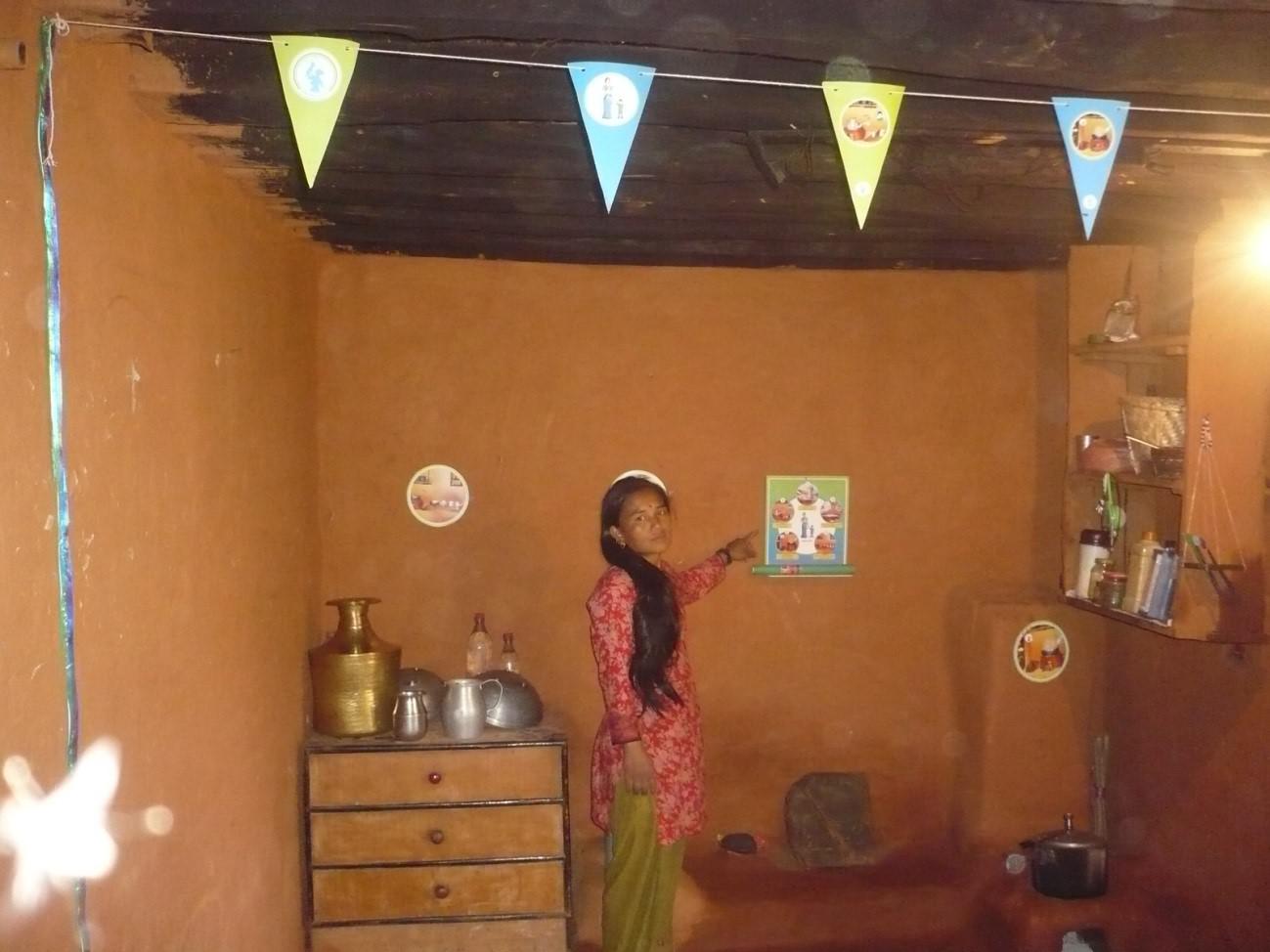A Success Story: SHARE's Contribution to Food Hygiene

Diarrhoeal disease is the second leading cause of death for children under the age of 5 globally, and kills more young children than AIDS, malaria and measles combined. It also causes malnutrition, which accounts for almost a quarter of the global disease burden for children under the age of five and takes a heavy toll on the health, livelihoods and physical and intellectual development of those children who do not die of it.
Contaminated weaning foods account for a substantial proportion of diarrhoeal diseases among infants and young children in developing countries due to pathogens transmitted through food. While it is important to an infant’s development to supplement breast milk with appropriate solid foods from six months, unhygienic preparation of weaning foods often exposes infants in low income settings to pathogens of faecal origin. The level of contamination in these foods can be higher than in drinking water in low income settings and there is evidence to suggest that the incidence of diarrhoeal disease is higher in children after weaning is initiated.
Recognising the importance of food hygiene in the prevention and control of faecally transmitted disease, and the need to build a stronger evidence base to support this, SHARE has funded three studies in this area, in Bangladesh, Nepal and The Gambia.
In Bangladesh, SHARE funded a small intervention study to investigate whether hygiene promotion is effective in reducing weaning food contamination in the country, in partnership with ICDDR,B. In the study, a total of 60 households in rural Matlab were selected (30 control and 30 treatment). Two types of weaning foods were collected from all the households and analysed for microbial contamination just after cooking and before the child was fed. Following HACCP procedures, critical control points (CCP) were determined. Mothers in the study households were trained to achieve and monitor the CCPs for a period of four weeks. Results showed that the hygiene intervention substantially reduced the faecal coliforms present in the food. SHARE research in Bangladesh identified the importance of complementary foods as an exposure pathway for sanitation and hygiene related pathogens. It also demonstrated that simple behavioural interventions can significantly reduce this exposure.
These findings spurred follow-up research in Nepal and the Gambia. In Nepal, SHARE funded the design, delivery and evaluation of a behaviour-change intervention on the food hygiene behaviours of mothers, that also measured the level of contamination in food eaten by children and diarrhoeal diseases among young children. The intervention, conducted by SHARE-funded PhD student Om Prasad-Gautam, consisted of a motivational package targeting five key food hygiene behaviours practiced by mothers, using emotional drivers to be delivered at the community and household level. The results substantiated the findings obtained in Mali and Bangladesh. They suggested that it is possible to substantially reduce the risk of contaminated weaning foods through scalable community-level interventions that target a limited number of key behaviours and motivate mothers to adopt these using emotional drivers and change in physical settings.
In the Gambia, SHARE has funded a cluster RCT investigating the effectiveness of behavioural change intervention in improving mothers weaning food preparation and handling practices in rural Gambia. The aim of the RCT is to evaluate the effectiveness of a behavioural change intervention on mothers weaning food preparation and handling practices in a rural setting in the Gambia. The primary outcome measure will be the proportion of the 6 key corrective measures observed during home visits at six months post intervention; i) Hand washing with clean water and soap before food preparation, ii) Hand washing with clean water and soap during cooking, iii) Hand washing with clean water and soap before feeding, iv) Washing serving dishes and utensils before serving food if dried on contaminated surfaces and v) Reheating weaning food after storage before first, and second feeding. The work is expected to start in the late summer/early autumn of 2014 for 6 months and offers a unique opportunity to build on the lesson learnt from the food hygiene work conducted in Mali, Bangladesh and Nepal, and the behaviour change approaches trialled in India, but as of yet untested in Africa.
